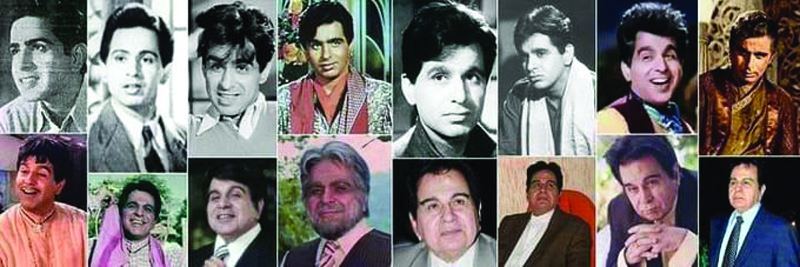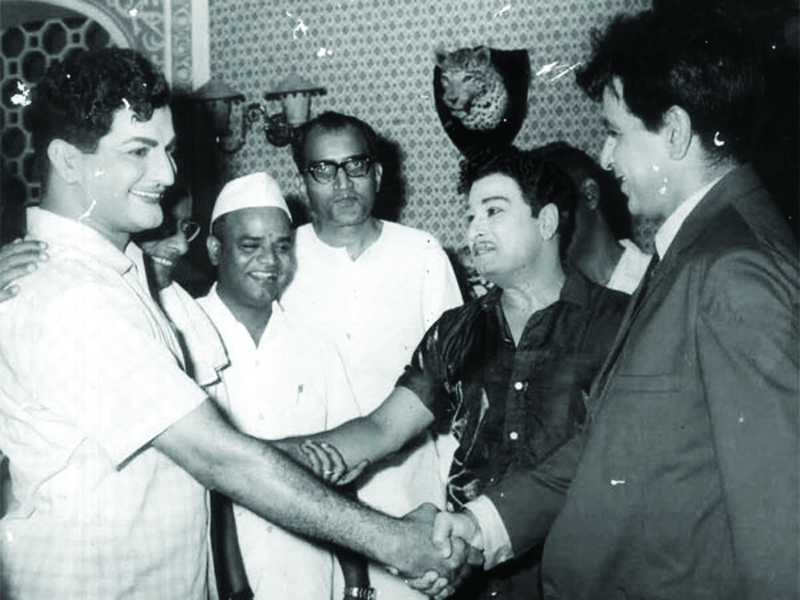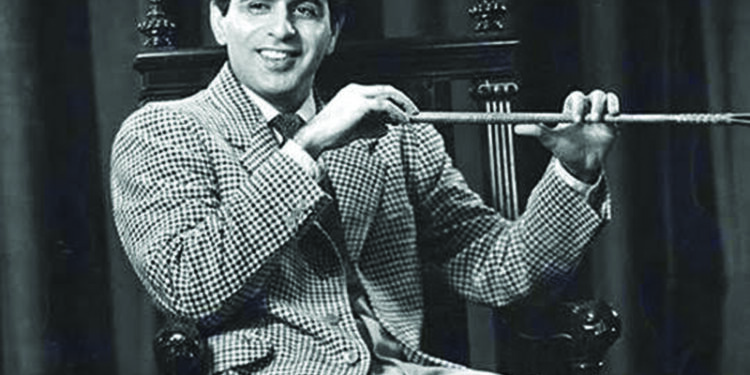Bollywood’s superstar and veteran actor Dilip Kumar passed away at a private hospital in Mumbai due to age-related medical issues at 7.30 a.m. on Wednesday.

Fondly called as Dilip Saab, was a class actor, who introduced the concept of superstardom to the Indian film industry. Eloquent, regal and emotive, Dilip saab conquered as the tragedy king, taking a permanent place in the heart of audiences’ of all ages.
Dilip Kumar summarised in himself a history of emerging India. The thespian’s charm transcended all boundaries, and he was loved across the subcontinent. With his demise, an era ends. Dilip Saab will live forever in the heart of India. Condolences to family and countless fans.
— President of India (@rashtrapatibhvn) July 7, 2021
Dilip Kumar Ji will be remembered as a cinematic legend. He was blessed with unparalleled brilliance, due to which audiences across generations were enthralled. His passing away is a loss to our cultural world. Condolences to his family, friends and innumerable admirers. RIP.
— Narendra Modi (@narendramodi) July 7, 2021
T 3958 – An institution has gone .. whenever the history of Indian Cinema will be written , it shall always be ‘before Dilip Kumar, and after Dilip Kumar’ ..
My duas for peace of his soul and the strength to the family to bear this loss .. 🤲🤲🤲
Deeply saddened .. 🙏— Amitabh Bachchan (@SrBachchan) July 7, 2021
Born among 12 children, Dilip saab was born as Yusuf Khan in Peshawar (now in Pakistan) on December 11, 1922, to Lala Ghulam Sarwar, a fruit merchant. The Sarwar family owned orchards in Peshawar and Deolali (Nasik), and so Yusuf’s schooling happened at Barnes School in Deolali.
During the late 1930s, the Sarwar family migrated to Mumbai, but the new place couldn’t hold young Yusuf’s attention for long; he soon relocated to Pune. Though initially expected to take care of the family business, Yusuf’s life changed forever after a chance encounter with the then reigning queen of Indian films, Devika Rani.
Buoyed by Devika’s faith in his persona and capacity as an actor, Yusuf began a scintillating journey in the industry that over the years delighted many a viewer.
It was a conservative time when a moniker like King Khan would not register as much adoration as it does now; business experts suggested Yusuf adopt a name that would appeal to a wider audience. Thus was born Dilip Kumar the actor, an identity that would come to define more than just a Bollywood actor, but a craft in itself.
https://twitter.com/listfishercom/status/1412637351742906369
Dilip Kumar got his first film, Jwar Bhata, in 1944, directed by Amiya Chakravarty. It turned out to be a perfect launch-pad for him as he was noticed by several producers and directors. By 1952, he would make films such as Jugnu, Shaheed, Mela, Aan, Daag, Arzoo and Deedar. In just eight years, Dilip had become a star with an enviable career.

In the years that followed, Dilip saab gave such gems – Devdas (1955), Azad (1955), Naya Daur (1957), Madhumati (1958), Paigham (1959), Kohinoor (1960), Mughal-E-Azam (1960) and Ganga Jamuna (1961). If Dilip was a star in his first decade as an actor, the next decade brought him superstar status.

In 1966, Dilip broke many hearts when he married fellow actor Saira Banu, a relationship that only seemed to grow more endearing over time.
In the following decade, Dilip saab continued to churn out hits including Leader (1964), Dil Diya Dard Liya (1966), Ram Aur Shyam (1967), Admi (1968) and Gopi (1970), continuing his domination over the box-office.
However, other actors were starting to catch up. Actor Rajesh Khanna was becoming popular, emerging as the master of romance. In years to come, he would take over the superstar tag, and later, so would Amitabh Bachchan with his ‘angry young man’ act.
With tragedy giving way to romance and then anger-spurred aspirations, Dilip Kumar took a five-year break from films in 1976. When he returned, he came back with powerful character roles in Kranti (1981), Vidhaata (1982), Shakti (1982), Mashal (1984) and Karma (1986).
By this time, he was 64 and acknowledged the twilight of his career. In 1991, Saudagar would prove to be his last memorable film though his starred in his last film – Qila – seven years later.
In 1994, Dilip saab was conferred with the highest award in Indian cinema, the Dadasaheb Phalke award. The Pakistani government also honoured him, with Nishan-E-Imtiaz in 1998.
Sayajit Ray, in fact, once said he had a great history as a person and an actor. Many even see his onscreen persona as an extension of his off-screen life. And it is from this high pedestal that Dilip saab still commands his superstar status, one that will be almost impossible for any other Indian actor to scale.
The mortal remains of Dilip Kumar was brought to his residence from Induja Hospital in Mumbai and the funeral would take palce in the evening at 5 pm.










